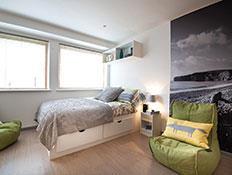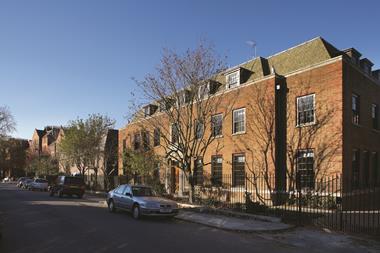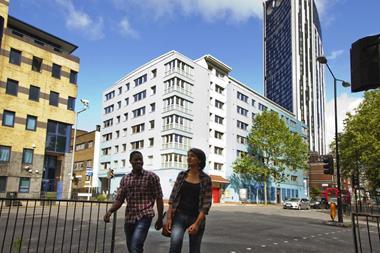Just four months after floating, Empiric Student Property is well on its way to building up an impressive portfolio of student accommodation properties.
The REIT has already bought 13 properties (1,211 beds), spending almost all the £85m it raised from its IPO in June, but there is a lot more to come. It is in the final stages of negotiations to commit another £30m on properties with 337 beds by the end of the year.
On top of that, it revealed last week it was in advanced talks to spend £180m on 15 properties with more than 1,800 beds and was in the early stages of looking at properties that could see it committing another £400m-£600m. In total, therefore, Empiric could end up spending almost £900m.
The challenge for Empiric is that it is not the only player in town. Only last week, Property Week revealed that LaSalle had embarked on a £200m-plus drive in the student housing sector with a £60m investment in Campbell Property. So how does Empiric plan to come out ahead of the pack?
In its first four months as a listed REIT, Empiric has plotted a steady course despite the volatility elsewhere on the stock market. Its shares have remained almost unchanged at 101p since the float, edging up to 102p after reports of the expansion plans last week.
It has announced plans to raise £300m in new equity over the coming year to fund the acquisition spree, starting with the launch of a £65m placing last week.
The fact the placing on Thursday was priced at £1.01 a share — in line with the previous day’s closing price rather than at a discount — supported the shares.
Empiric chief executive Paul Hadaway jokes that one investor told him: “I love your stock. Everything else is down 10% but you’re up 1%.” However, competition is mounting. As Dexion Capital remarked in an investor note:”The potential returns from the strategy are attractive, but the company will have to compete for attention against its more established peers.”
Hadaway claims not to be worried, arguing that the figures still make sense even if student numbers stop growing.
“There are pushing 2.5 million students in the UK — that’s 7.5 times as many as there were a generation ago,” he says. “Even with all that has been going on in student accommodation, there is still less investment than there is in academic buildings.”
Empiric is also hoping to differentiate itself by focusing on the top end of the market. Even with bills thrown in, rents of £135-£210/week are significantly more expensive than typical student digs or the accommodation that the likes of Unite may provide. They are the preserve of wealthier foreign students and postgrads, who Hadaway points out have grown in number even faster than undergraduates in recent years.
The developments have a wide range of on-site facilities such as gyms, cinema rooms, games rooms and work rooms to attract students.
Empiric is also targeting the better universities, which tend to attract higher numbers of wealthier students. So far, it has acquired properties in cities including Birmingham, Cardiff and Nottingham.
Because of its specialised focus, Hadaway says Empiric is careful not to build too much in one place. “We’re sticking to having no more than 500 beds in any given city — no more than 1% of the addressable market.”
After the share placing, the next priority will be to close the £180m of deals it is currently in advanced negotiations for. It has set a deadline of the end of March next year and needs to ensure it maintains a healthy deal flow to reach its long-term objective of a portfolio of 8,000 to 10,000 beds.
Of course, speed is not the only consideration and Empiric will have to choose its sites carefully if it is to achieve its target of a total return of 13% per annum and dividend yield of 6%.






























No comments yet